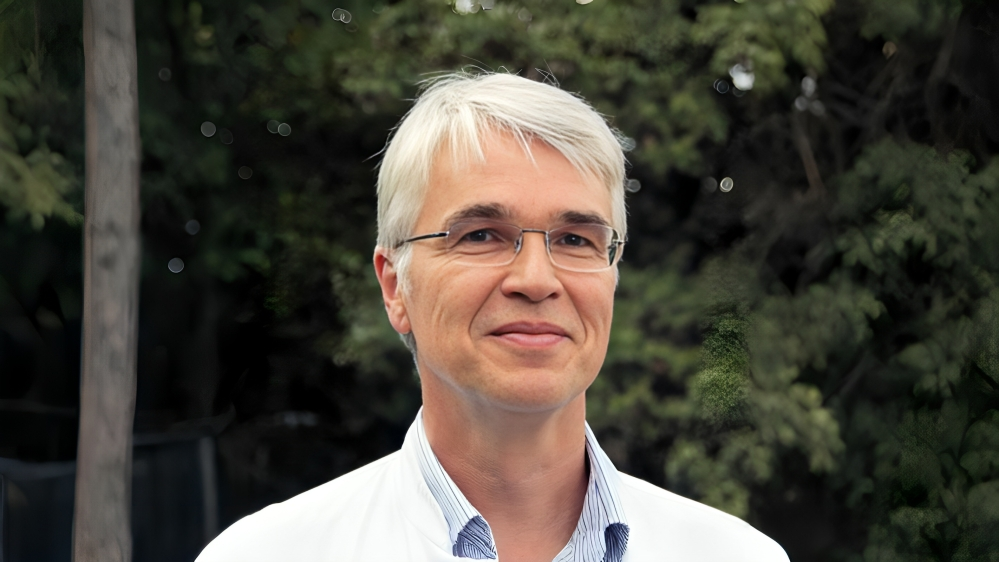
Wolfgang Miesbach on the Bi8 Study: A Novel FVIII-Mimetic Antibody Gene Therapy for Haemophilia A
Wolfgang Miesbach, Professor of Medicine at Frankfurt University Hospital, shared on LinkedIn:
”The Bi8 Study demonstrates a novel single-chain FVIII-mimetic antibody gene therapy approach that could enhance treatment options for haemophilia A.
The AAV8-Bi8 system delivers the genetic blueprint (DNA sequence) for the Bi8 antibody directly to hepatocytes through.
Hepatocytes are naturally equipped with sophisticated protein synthesis and secretion machinery that makes antibody production entirely feasible.
What Makes Bi8 Special?
- Compact Design, Maximum Impact: Unlike traditional approaches that struggle with oversized FVIII genes, Bi8 is elegantly designed as a compact 54.5 kDa single-chain antibody that fits comfortably within AAV8 vectors using just a 4.4 kb expression cassette. This solves the major packaging challenge that has limited previous gene therapies.
- Dose-dependent, durable expression across three dose levels (4×10¹¹, 4×10¹², and 1.2×10¹³ vg/kg)
- Peak plasma concentrations of 4.5, 47.4, and 178.8 nM respectively at 2 weeks post-infusion
- Complete phenotypic correction of bleeding – even at the lowest dose, blood loss was reduced from 760.4 μL to 401.2 μL
Key Advantages Over Current Approaches
- Excellent Safety Profile: The 12-week study showed no toxicity or anti-drug antibody responses in any treated animals. Transgenic expression remained stable throughout the study period with no immunogenicity concerns.
- Enhanced Durability Potential: While current FVIII gene therapies like Roctavian show declining expression over time, Bi8’s antibody-based approach within optimal AAV packaging constraints may offer more stable long-term expression patterns.
- Broader Patient Applicability: The approach could potentially benefit patients with FVIII inhibitors, expanding treatment options beyond current gene therapies.
Looking Forward
The study demonstrates that haemostasis was secured across all dose groups, including complete bleeding correction at clinically relevant doses.
AAV8-Bi8 has the potential to offer sustained, life-long haemostatic control, including in patients who have developed inhibitors to FVIII.
However, do we still need gene therapy on FVIII mimetics when the first oral FVIII mimetic is in clinical development?
Congratulations to Amit Nathwani and co-authors of the University College London. Blood Journals Portfolio.”
Read the full article in Blood.
Article: Alternative AAV gene therapy for hemophilia A using expression of Bi8, a novel single-chain FVIII-mimetic antibody
Authors: Vincent Muczynski, Olivier D. Christophe, Lewis Tanner, Charlotte Vayssiere, Alice Guérin, Caterina Casari, Jenny Hazel McIntosh, Doyoung Lee, Gavin Ling, Satyen Harish Gohil, Peter J Lenting, Edward G Tuddenham, Amit C Nathwani

Stay updated on all scientific advances in the field of bleeding disorders with Hemostasis Today.
-
Feb 25, 2026, 12:20Register for A Webinar on von Willebrand Disease in Ageing – EHC
-
Feb 25, 2026, 12:09Ellis Neufeld is Appointed as New Associate Editor of Blood
-
Feb 25, 2026, 12:02WFH Continues to Advance More Precise and Sustainable Care for People with Bleeding Disorders
-
Feb 25, 2026, 09:14Nominations are Open for 2027 Committee and Leadership Positions – ASH
-
Feb 25, 2026, 09:08Bastu Odoka: Closing the Gap on Anti-D Prophylaxis in Maternal Care
-
Feb 25, 2026, 08:53Eiman Alzaabi: Sharing Rare Observations and Challenging Assumptions in Transfusion Medicine
-
Feb 25, 2026, 08:40Matthew Flick։ A Great Gordon Research Conference on Plasminogen Activation and Extracellular Proteolysis
-
Feb 24, 2026, 16:18Salmaan Dalvi: Mapping Rare Diseases Across East and Central Africa
-
Feb 24, 2026, 16:16Wolfgang Miesbach: Game‑Changing Data on Intensive FVIII Replacement in Haemophilia A with Hypertrophic Synovium

